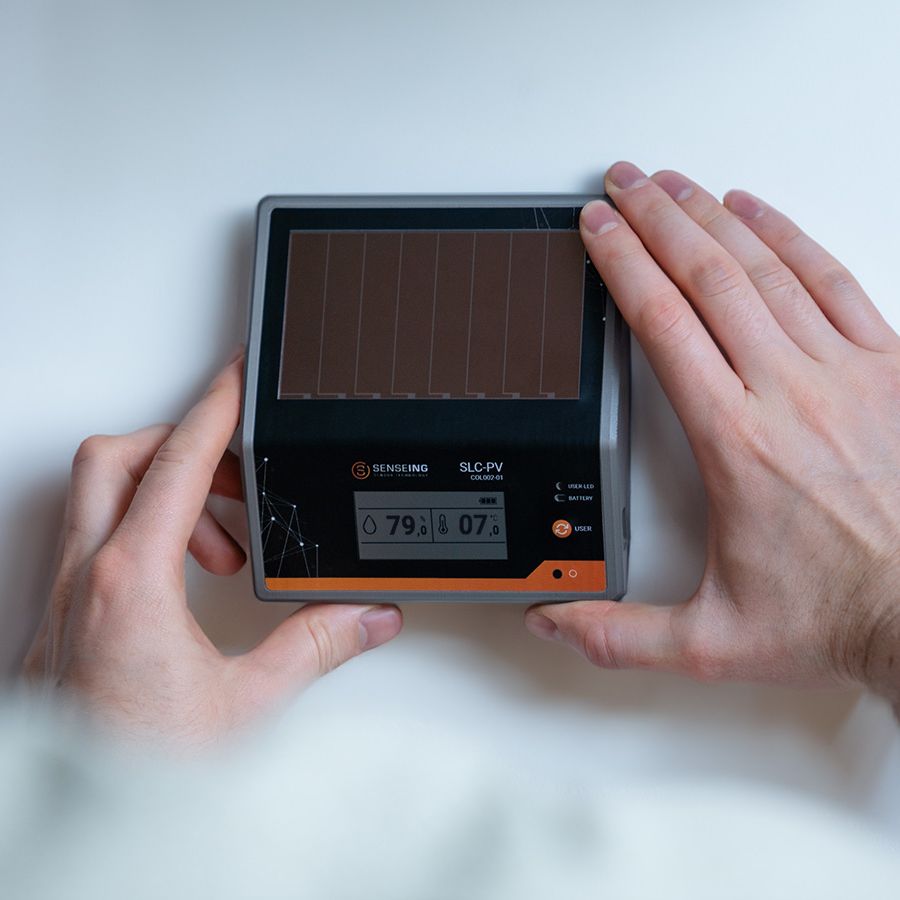Energy Harvesting
Sustainable energy generation for intelligent sensors
Our energy harvesting sensors utilise ambient energy sources such as light for autonomous operation.
What is energy harvesting?
Energy harvesting is a technology that utilises ambient energy such as light, movement or temperature differences to generate electrical energy. Instead of using conventional batteries, this technology harvests energy from the environment, which is more environmentally friendly and sustainable. It is used in wireless sensors, IoT devices and other energy-saving electronic devices to extend battery life and eliminate the need for regular battery replacements.
Generating energy from the environment
Die Gewinnung von Energie aus der Umwelt ist ein Schlüsselaspekt moderner Technologien. Dabei kann man das “Ernten” von Energie grundsätzlich in drei Ansätze unterteilen.
Energy from ambient light
Photovoltaic cells enable the direct conversion of light energy, especially sunlight, but also indoor lighting, into electrical energy. This approach offers sustainable solutions for power supply in environments with sufficient light.
Energy from temperature differences
Thermoelectric generators are devices that can generate energy from temperature differences. They utilise what is known as the Seebeck effect. This means that if there is a temperature difference between two materials, the generator produces electrical energy. This method is particularly efficient and is well suited to locations with different temperatures.
Energy from movement
By using piezoelectric materials, mechanical movements or vibrations can be converted into electrical energy. This technology is suitable for applications in which regular movements occur.

How SenseING uses energy harvesting in its products
SenseING integrates into its products SLC-PV and SNC-PV Indoor solar cells for self-sufficient operation of the data loggers. The use of solar energy offers ecological advantages and enables a continuous energy supply. This allows the data loggers to supply themselves with energy over long periods of time, eliminating the need for inconvenient battery changes and recharging processes. The intelligent use of interior lighting enables operation even in environments without direct sunlight. In addition, the problem of assigning data to objects is solved, as self-sufficient data loggers can be permanently attached to products such as insulated containers and manual assignment processes are no longer necessary.
Benefits of
Energy Harvesting
Independence
Energy harvesting enables automated processes through independence from conventional energy sources, which in turn allows permanent installation and continuous tracking of devices.
Sustainability
The use of ambient energy in data loggers minimises the ecological footprint by eliminating batteries and dispensing with disposable products.
Energy efficiency
The use of environmentally friendly energy reduces the need for conventional power sources.
Cost savings
Costs for battery replacement and conventional energy sources are eliminated.
Longer service life
Energy harvesting can extend the service life of battery-powered devices.